| January 11 | Harel Gietheim, cello; Kanako Nishikara, piano |
| January 18 | Nicholas Dinnerstein, cello |
| January 25 | Sylvia Berry, piano |
| February 1 | Concordia Consort |
| February 8 | Margaret Rowley, flute |
| February 15 | David Salstein, piano. Jane Pollack, flute |
| February 22 | Paulo Cesar Pereira, cello |
All posts by admin
January 25: Robert Hildreth, “Financial Aid That Won’t Make You Broke: Can Low-Income Families Save Enough for College?”
 Robert Hildreth is Founder and Executive Director of .
Robert Hildreth is Founder and Executive Director of .
Following a career in finance, Bob Hildreth created a matched savings program that encouraged low-income families to save toward higher education. This idea became the basis for FUEL Education, which has helped the families of more than 700 students from Boston, Chelsea, and Lynn save more than $600,000 toward their education. In his talk, Bob will discuss how a national savings program could help stimulate savings for college among lower income populations and ultimately make it possible for more families to send the children to college without the burden of crippling student debt.
January 18: Evan Falchuk, “Breaking the Two-Party Lock on Politics: The United Independent Party”
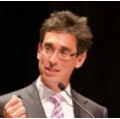 Evan Falchuk is the founder of the . As a candidate in the November 2014 gubernatorial election, he surpassed the three percent threshold required by state law for the United Independent Party to earn official status in the Commonwealth of Massachusetts. This milestone means the United Independent Party – dedicated to a greater diversity of modern, progressive ideas combined with fiscally sane solutions – is taking its place alongside the Democratic and Republican parties in Massachusetts. Continue reading
Evan Falchuk is the founder of the . As a candidate in the November 2014 gubernatorial election, he surpassed the three percent threshold required by state law for the United Independent Party to earn official status in the Commonwealth of Massachusetts. This milestone means the United Independent Party – dedicated to a greater diversity of modern, progressive ideas combined with fiscally sane solutions – is taking its place alongside the Democratic and Republican parties in Massachusetts. Continue reading
January 11: Kerry Emanuel, “What We Know About Global Warming”
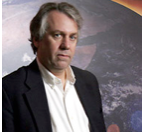 Kerry Emanuel is Professor of Atmospheric Science at the Massachusetts Institute of Technology. A recognized authority on meteorology and climate change, he is both a political conservative and a harsh critic of those who deny the urgency of the global climate change crisis.
Kerry Emanuel is Professor of Atmospheric Science at the Massachusetts Institute of Technology. A recognized authority on meteorology and climate change, he is both a political conservative and a harsh critic of those who deny the urgency of the global climate change crisis.
Professor Emanuel will address the scientific basis for concern about global warming and talk about why the issue remains controversial outside of the scientific arena.
New Hope for a New Year?
Submitted by Andrea Perrault
 As the year came to a close, I found myself reflecting on the events of 2014; the summer was hard, but as fall approached, I had found some positive things to contemplate. Then we had the results of the 2014 mid-term election – nothing much positive there. As we headed toward 2015, the state of the country seemed to grow even more dismal. However, as the negative events multiplied, a spirit of activism seemed to have been awakened among the population. As the killings in Ferguson, New York, and Cleveland garnered increased publicity, outrage on the part of many Americans was percolating. Civil disobedience now is occurring to renew the fight for civil rights and to expand the discussion about what is meant by a “civil society”. Will it be sustained or will it be the trend of the season? Continue reading
As the year came to a close, I found myself reflecting on the events of 2014; the summer was hard, but as fall approached, I had found some positive things to contemplate. Then we had the results of the 2014 mid-term election – nothing much positive there. As we headed toward 2015, the state of the country seemed to grow even more dismal. However, as the negative events multiplied, a spirit of activism seemed to have been awakened among the population. As the killings in Ferguson, New York, and Cleveland garnered increased publicity, outrage on the part of many Americans was percolating. Civil disobedience now is occurring to renew the fight for civil rights and to expand the discussion about what is meant by a “civil society”. Will it be sustained or will it be the trend of the season? Continue reading
Liberty and Property
Submitted by Marvin Miller
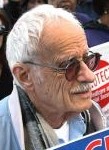 Liberty and property are subjects for ethical discussion. Your ethical values justify your ideas about who should have which liberties and who should own what property. Continue reading
Liberty and property are subjects for ethical discussion. Your ethical values justify your ideas about who should have which liberties and who should own what property. Continue reading
Political Third Parties: Saviors or Spoilers?
Submitted by Fred Hewett
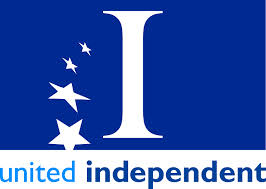 On January 18, 2015 the Boston Ethical Community will host a talk by Evan Falchuk, 2014 candidate of the United Independent Party for governor of Massachusetts.
On January 18, 2015 the Boston Ethical Community will host a talk by Evan Falchuk, 2014 candidate of the United Independent Party for governor of Massachusetts.
In that race, Falchuk succeeded in getting more than 3% of the vote, thereby conferring official status on the United Independent Party. This means that the party can hold primaries and voters can register under the party’s banner. Continue reading
Book Review: A Fighter for Equality
Submitted by Peter Denison
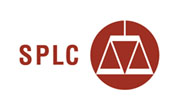 A Lawyer’s Journey: The Morris Dees Story. Morris Dees and Steve Fiffer. 2001.
A Lawyer’s Journey: The Morris Dees Story. Morris Dees and Steve Fiffer. 2001.
This book was sent to me by the Southern Poverty Law Center because of my long standing financial support. Morris was the son of an Alabama farmer who had always been friendly with Negroes unlike his bigoted siblings and neighbors. As a boy Morris played with other boys, black or white, even though he didn’t question Southern segregation. The beginning of the Civil Rights Revolution had little effect on him, but the violent southern reaction to it certainly did. He was impelled to study law, which his father had always wanted, and when he opened practice he did get involved in some civil rights cases. He had found himself able to start a profitable mail order business, having figured out how to send out letters which would get more than a one percent return. He finally developed a business with his law partner Millard Fuller which he managed to sell for six million dollars. At that time, he immersed himself in pro bono work in civil rights cases, defending Negroes who had been unfairly accused, or at least preventing a death sentence. Millard left the partnership to found Habitat for Humanity. They had been college friends and idealistic, but started to practice their idealism in different directions. Continue reading
January 2015 Newsletter
Click here to download the January 2015 newsletter.
The Passivhaus Project as an Ethical Idea
Editor’s note: The following post was written by Fred Gordon, who spoke to us on November 16, 2014. The corresponding Powerpoint slides referenced in this post can be downloaded here.
 The issue of climate change is both overwhelmingly important, and also distant and abstract. It is unlike the imminence of war, where motives which we recognize as bad—aggression, hatred, xenophobia, and national aggrandizement—threaten to produce disastrous results, and we can point to these bad motives with distressed warning. It is not like issues of social injustice, where the anger and pain of those who are victims remind us of the presence of the injured. Global warming was not the result of any evil act, but centuries of quite innocent and even beneficent acts—think of the early enthusiasm for electricity, or automobiles. But through a slow accumulation of scientific data, all of these things we thought were benign are now recognized as bringing about a result which is quite horrible. But it is a horror which won’t come upon us for decades. Global warming has therefore a kind of intellectual distance —we depend upon science to tell us what we can’t see much of day to day and won’t see the worst of until it is too late to do anything about it. Continue reading
The issue of climate change is both overwhelmingly important, and also distant and abstract. It is unlike the imminence of war, where motives which we recognize as bad—aggression, hatred, xenophobia, and national aggrandizement—threaten to produce disastrous results, and we can point to these bad motives with distressed warning. It is not like issues of social injustice, where the anger and pain of those who are victims remind us of the presence of the injured. Global warming was not the result of any evil act, but centuries of quite innocent and even beneficent acts—think of the early enthusiasm for electricity, or automobiles. But through a slow accumulation of scientific data, all of these things we thought were benign are now recognized as bringing about a result which is quite horrible. But it is a horror which won’t come upon us for decades. Global warming has therefore a kind of intellectual distance —we depend upon science to tell us what we can’t see much of day to day and won’t see the worst of until it is too late to do anything about it. Continue reading
